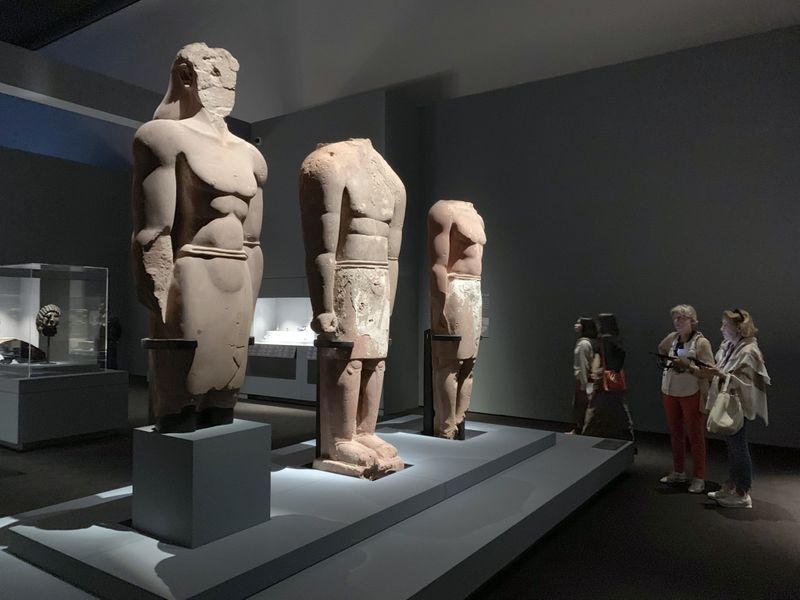Abu Dhabi: Prior to the COVID-19 outbreak, museums were spaces of public gathering and learning. However, the restrictions brought about by the pandemic have forced these cultural venues to adopt a whole new range of strategies to engage audiences and stay relevant, even as travel restrictions and limits on human gatherings remain in place.
Chief among these are collection sharing, digital engagement and youth reach, a symposium hosted from Abu Dhabi heard on Monday.
Backbone to society
Speaking at the Reframing Museums virtual conference, Mohamed Al Mubarak, chairman at the Department of Culture and Tourism — Abu Dhabi (DCT Abu Dhabi), said art and culture are especially important today.
“Culture is the backbone of any society, the mausoleums of the society. But there was a fear at the beginning of the pandemic that culture will take a step back. [With our efforts], we’ve made sure that culture sits at the front of the agenda,” Al Mubarak said.
“We looked within us, and contacted museums around the world to discuss how we could organise exhibitions and how we could keep staff safe as we opened up,” he said.
Closure measures
At the iconic Louvre Abu Dhabi, a total of 22 new digital projects were launched in response to the temporary physical closure of the facility in spring 2020, including an audio-visual podcast, a 360-degree virtual exhibition of a temporary exhibition, a health and wellbeing webinar and a virtual summer programme for more than 24,000 participants. In essence, many of these projects brought the museum experience home, said Souraya Noujaim, scientific, curatorial and collections management director at the Louvre Abu Dhabi.

Image Credit: Supplied
Expanding reach
Since the reopening, the facility has also transformed itself into a ‘mindful museum’, stationing nurses to oversee thermal screening areas and conduct regular audits to ensure compliance with COVID-19 precautions. In addition, it is continuing to reach out to new groups of people by offering free admission to frontline workers, schoolteachers, taxi drivers, children and teenagers aged upto 18 years.
“Onsite options may have shrunk, but the urgency of the moment gives museums a chance to reshape themselves,” said Mariet Westermann, vice-chancellor at NYU Abu Dhabi. She explained how museums are looking at sharing their collections more and more today, instead of just building upon them, as was done in the past.
Call for collection sharing
Sheikha Hoor Al Qassimi, president and director of the Sharjah Art Foundation, stressed the need for sharing art and called upon museums and collectors to facilitate sharing so that valuable artworks do not remain in storage. “Collection sharing has been limited till now because of shipping and insurance costs, and difficult logistics, and we hope that this will now change and solutions will be found,” she added.
Read more
The symposium will continue until Wednesday and is expected to see 1,000 virtual attendees engaging with 60 speakers and experts from around the world. Al Mubarak added that culture will continue to remain at the forefront, with the DCT looking, in the near future, at opening the Zayed National Museum to highlight UAE heritage and the Guggenheim Abu Dhabi to showcase contemporary, modern art from around the world.

